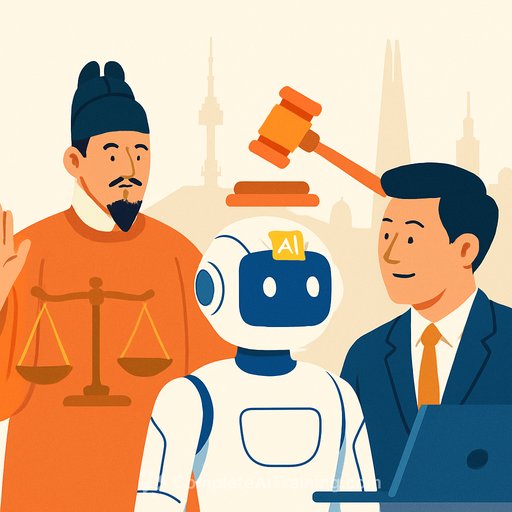Sejong's Legal Philosophy Meets AI: Chief Judge Jo Hee-de's Call to Courts Worldwide
At the opening of the 2025 Sejong International Conference in Seoul, Chief Judge Jo Hee-de underscored a simple idea: law is a social contract to improve people's lives and secure their rights, not a tool to fortify authority. He tied King Sejong's approach to justice with today's priorities-rule of law, judicial independence, and practical access to justice.
Hosted by Korea's Supreme Court for the first time in nine years, the two-day conference brings together chief justices and judges from more than ten countries, along with current and former leaders of the International Criminal Court. The agenda centers on safeguarding independent courts and applying AI responsibly in judicial work.
Why this matters to legal leaders
King Sejong treated legality, transparency, and fairness as non-negotiable. Chief Judge Jo highlighted policies that kept the process clear, timely, and humane, and ensured the public could understand and use the law.
The message is relevant: courts earn legitimacy not by force, but by access, clarity, and restraint.
Sejong's practices worth applying now
- Publish the law so no one is punished for ignorance of it; write for comprehension.
- Record investigative and trial steps clearly to prevent unjust outcomes.
- Avoid delays through disciplined case management and transparent timelines.
- Ban coercive methods and excessive punishment; center proportionality and dignity.
- Invite debate inside government; decide through reasoned discussion, not pressure.
- Notify the public before enforcement and listen to feedback (as with the Gong tax law).
- Choose inclusion over factionalism-govern with breadth, not narrow allegiance.
Hangeul as an instrument of justice
Jo explained the principles of Hunminjeongeum and noted how the language encodes an inclusive "we," bridging "I," "you," and "others." He framed Hangeul as a humanistic script built to communicate with the people and enable fair administration.
Quoting the Haerye, he noted that recording cases in Hangeul made factual contexts legible. In practice, the script functioned as legal infrastructure-improving comprehension, participation, and trust. For background, see Hunminjeongeum.
International participation and agenda
Judicial leaders from Singapore, Japan, China, the Philippines, Australia, Greece, Italy, Latvia, South Africa, Mongolia, Kazakhstan, and others joined, alongside current and former presidents of the International Criminal Court. Learn more about the ICC's mission at the International Criminal Court.
Discussions focus on defending rule of law and court independence, and on practical applications of AI in judicial systems.
AI and access to justice: the connection
Jo drew a line from Hangeul's expansion of legal access to modern AI initiatives that can do the same at scale. The goal is simple: make courts easier to reach, understand, and trust.
- Plain-language assistants to translate legal documents and court orders.
- Smart triage for filings to route cases, flag risks, and reduce backlog.
- Summarization of records and precedents to support consistent reasoning.
- Multilingual intake and notification tools to cut language barriers.
- Bias testing, explainable outputs, and audit trails embedded from day one.
What court leaders can do next
- Adopt a plain-language policy for all public-facing materials; measure readability.
- Pilot AI for limited use cases (transcription, scheduling, notifications) with judge-in-the-loop review.
- Publish an AI use and risk policy covering data security, provenance, auditability, and human oversight.
- Set success metrics: time to disposition, backlog change, appeal and complaint rates, self-represented litigant outcomes.
- Create a cross-functional review board (judges, clerks, IT, ethics) to approve and monitor tools.
- Invest in training for judges and staff; require periodic refreshers and scenario testing.
- Design for inclusion: provide language support, accessibility features, and offline alternatives.
Event notes
At the Shilla Hotel in Jung-gu, Seoul, Chief Judge Jo emphasized that Sejong shared laws widely, documented procedures, curtailed excessive punishment, and encouraged open deliberation across state affairs. He cited Sejong's public notice and consultation before enforcing laws and his inclusive appointments despite political resistance.
The core takeaway is steady: courts thrive when the law is clear, the process is recorded, timelines are respected, and the public is treated as a partner.
Further resources
- European Ethical Charter on AI in Judicial Systems (CEPEJ)
- AI courses by job role - training options for legal teams
Your membership also unlocks:






